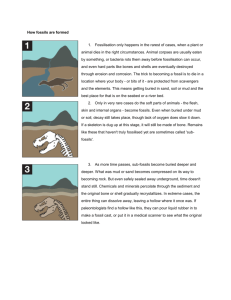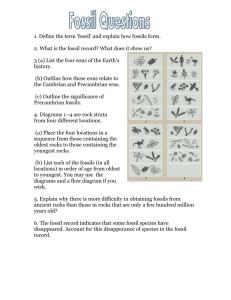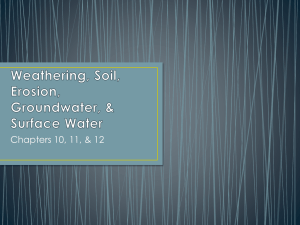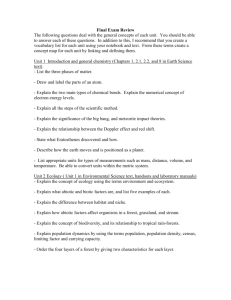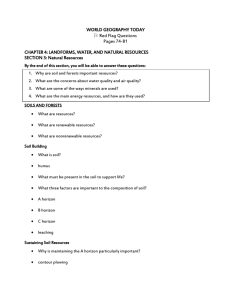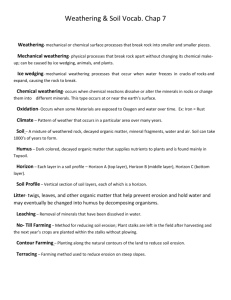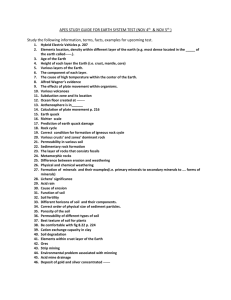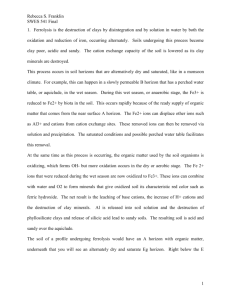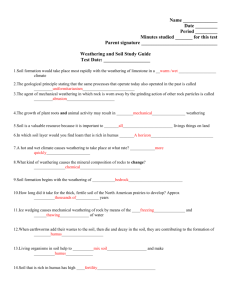Click Here - Henry County Schools
advertisement
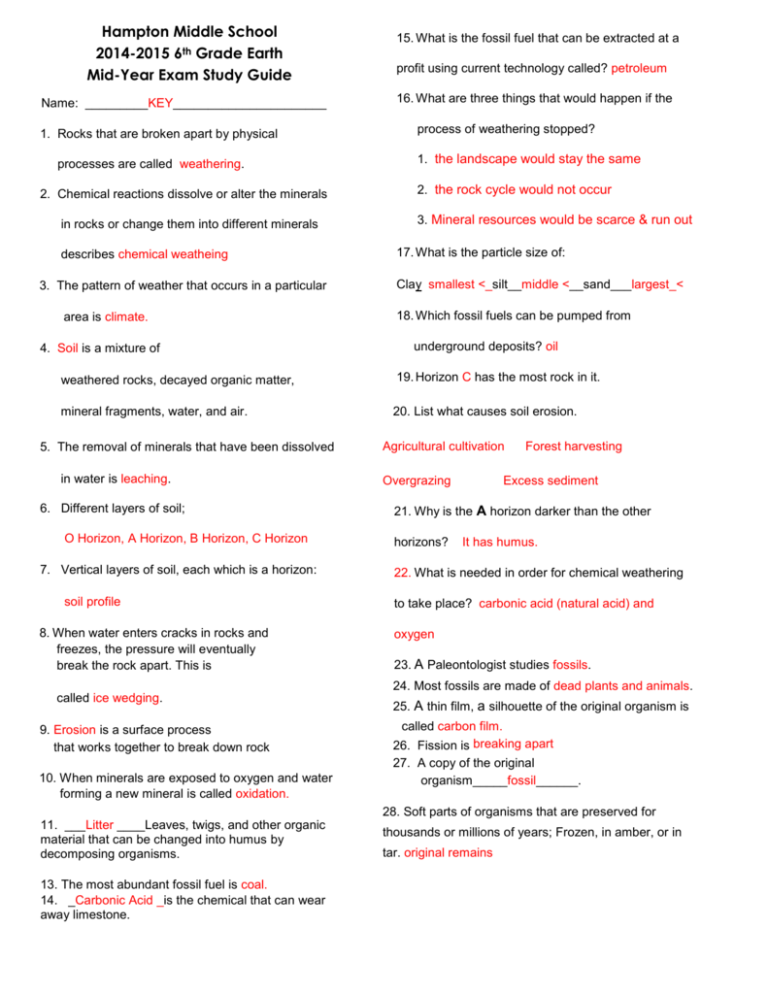
Hampton Middle School 2014-2015 6th Grade Earth Mid-Year Exam Study Guide Name: _________KEY______________________ 1. Rocks that are broken apart by physical processes are called weathering. 2. Chemical reactions dissolve or alter the minerals in rocks or change them into different minerals describes chemical weatheing 3. The pattern of weather that occurs in a particular area is climate. 4. Soil is a mixture of 15. What is the fossil fuel that can be extracted at a profit using current technology called? petroleum 16. What are three things that would happen if the process of weathering stopped? 1. the landscape would stay the same 2. the rock cycle would not occur 3. Mineral resources would be scarce & run out 17. What is the particle size of: Clay smallest <_silt__middle <__sand___largest_< 18. Which fossil fuels can be pumped from underground deposits? oil weathered rocks, decayed organic matter, 19. Horizon C has the most rock in it. mineral fragments, water, and air. 20. List what causes soil erosion. 5. The removal of minerals that have been dissolved in water is leaching. 6. Different layers of soil; O Horizon, A Horizon, B Horizon, C Horizon 7. Vertical layers of soil, each which is a horizon: soil profile 8. When water enters cracks in rocks and freezes, the pressure will eventually break the rock apart. This is Agricultural cultivation Overgrazing Forest harvesting Excess sediment 21. Why is the A horizon darker than the other horizons? It has humus. 22. What is needed in order for chemical weathering to take place? carbonic acid (natural acid) and oxygen 23. A Paleontologist studies fossils. 24. Most fossils are made of dead plants and animals. called ice wedging. 9. Erosion is a surface process that works together to break down rock 10. When minerals are exposed to oxygen and water forming a new mineral is called oxidation. 25. A thin film, a silhouette of the original organism is called carbon film. 26. Fission is breaking apart 27. A copy of the original organism_____fossil______. 28. Soft parts of organisms that are preserved for 11. ___Litter ____Leaves, twigs, and other organic material that can be changed into humus by decomposing organisms. 13. The most abundant fossil fuel is coal. 14. _Carbonic Acid _is the chemical that can wear away limestone. thousands or millions of years; Frozen, in amber, or in tar. original remains 29. Fossilized tracks and other evidence of the activity, of organism are called trace fossils. 44. When is peat produced during coal formation? During the first step 30. Energy from the sun-is called solar energy. 45. Where does geothermal energy come from? Hot 31. A wind farm can generate electricity. magma inside Earth 32. Energy produced from water power 46. How is Extinction caused? Climate heating and is hydroelectric energy. cooling 33. Energy from magma is called geothermal energy. 47. Can a footprint be a fossil? Yes, it is a trace fossil 34. The outermost layer of Earth is 48. What is the most used energy in the United States? the crust. 35. Foliated rocks are distinguished by layers. 36. Sedimentary rocks are formed by compaction and cementation. Petroleum (fossil fuels) 49. Soft parts of animals/plant and tar or amber makes up (ingredients) original remains. 50. The innermost layer of the Earth is made of nickel and iron. 37. What is a rock made of/from? minerals 51. Magma forms deep inside Earth because of a rise 38. What is considered to be SAFE behavior during a in temperature (heat) and a drop in pressure. lab activity? Wearing safety goggles, following directions, and reporting any spills/accidents to your teacher immediately. 39. The crystals that form in slowly cooling magma are generally large. 40. Where does humus come from? Decayed organic matter (dead plants and animals) 41. Why can plants not grow well in clay? Because clay holds water and doesn’t allow minerals and oxygen to flow freely through soil 42. What are the three types of fossil fuels? (1) coal (2) oil (3) natural gas 43. What does being a renewable resource mean? Resource can be replenished naturally in a lifetime
